Fish: The Ultimate Brain Food?
The Power of Omega-3s for Brain and Heart Health
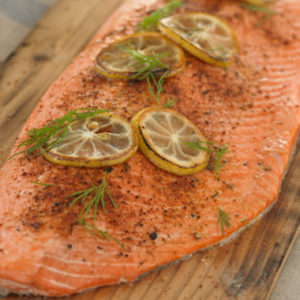 Omega-3 fatty acids are essential for overall health, particularly for brain function, heart health, and reducing inflammation. While there are six different types of omega-3s, the most important for human health are ALA, EPA, and DHA. In this article, we’ll explore why these omega-3s matter and how to get them from the best sources.
Omega-3 fatty acids are essential for overall health, particularly for brain function, heart health, and reducing inflammation. While there are six different types of omega-3s, the most important for human health are ALA, EPA, and DHA. In this article, we’ll explore why these omega-3s matter and how to get them from the best sources.
ALA: The Master Omega-3
ALA (alpha-linolenic acid) is a plant-based omega-3, often referred to as the “master omega-3” because it serves as a precursor to EPA and DHA. ALA is found in flaxseeds, chia seeds, hemp seeds, walnuts, and perilla oil.
However, the conversion of ALA into EPA and DHA is highly inefficient—less than 3% for DHA in healthy individuals and even lower for those with metabolic issues. This means relying on ALA alone is not sufficient for optimal brain and heart health.
Why DHA is Crucial for Brain Function
DHA (docosahexaenoic acid) is a critical structural component of the brain, making up a significant portion of neural membranes. It is also one of the three key nutrients required for synaptogenesis—the formation of new brain connections essential for learning, memory, and neuroplasticity. Since the body cannot produce enough DHA efficiently, consuming it directly from food sources like cold-water fatty fish or high-quality supplements is essential.
The Best Vegan Source of DHA
For those following a vegan diet, obtaining DHA can be a challenge. While most plant-based diets lack direct sources of DHA, algae-based supplements provide an excellent alternative. Sea algae is the only known plant source of DHA, making it a must-have supplement for individuals who avoid fish.
🔹 Check out our Full Article on Vegan Supplementation to learn more about plant-based omega-3 strategies.
Omega-3s and Human Evolution
Scientists believe that the consumption of fish and sea vegetables played a pivotal role in the development of the modern human brain. Cold-water fatty fish are loaded with nutrients that enhance cognitive function, reduce inflammation, and improve cardiovascular health.
The American Heart Association’s Omega-3 Recommendations
The American Heart Association (AHA) recommends consuming at least two servings of fatty fish per week for optimal heart health. Fatty fish like salmon, tuna, sardines, and mackerel are rich in omega-3s, selenium, vitamin D, and other essential nutrients.
🔹 Eating omega-3-rich fish supports heart health, brain function, and longevity.
Cold-Water Fatty Fish: The Ultimate Superfood
In How to Feed a Brain, I categorize cold-water fatty fish as one of the four essential superfoods due to their unmatched nutrient density. These fish are rich in:
✅ EPA & DHA – Critical for brain health and cardiovascular function
✅ Selenium – Binds to mercury, neutralizing its toxicity
✅ Vitamin D – Supports immune function and mental well-being
✅ CoQ10 & Astaxanthin – Powerful antioxidants that combat oxidative stress
The best cold-water fatty fish include wild-caught salmon, mackerel, anchovies, sardines, and herring (SMASH fish). Their superior omega-3 content makes them one of the most effective brain-boosting foods available.
Mercury and Fish Safety: What You Need to Know
A 2006 study published in JAMA, Fish Intake, Contaminants, and Human Health: Evaluating the Risks and Benefits, concluded that the benefits of eating fish far outweigh the potential risks. Many concerns over mercury in fish are exaggerated, as most cold-water fatty fish are naturally high in selenium, which binds to mercury and neutralizes its toxicity.
Safe vs. High-Mercury Fish
✅ Safe, selenium-rich fish: Wild-caught salmon, sardines, anchovies, herring, mackerel, and rainbow trout.
❌ High-mercury fish to avoid: Pilot whale, tarpon, marlin, swordfish, and sharks.
* For a brain-boosting diet, prioritize selenium-rich fish to avoid mercury concerns.
Why Salmon is a Nutrient Powerhouse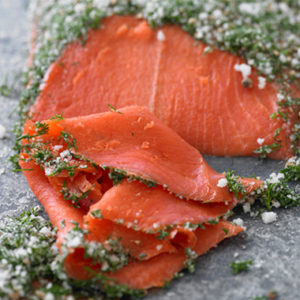
Salmon is more than just an omega-3 powerhouse—it’s also packed with brain-boosting antioxidants. Here’s what makes salmon an essential superfood:
🧠 Vitamin B12 – Supports nerve function and energy production.
☀️ Vitamin D3 – Essential for mood, immune health, and cognitive function.
🛡️ Vitamin E – A powerful antioxidant that combats oxidative stress.
Since chronic inflammation accelerates aging and disease, incorporating salmon and other antioxidant-rich foods into your diet helps protect your health long-term.
Astaxanthin: Nature’s Most Powerful Antioxidant
Wild salmon’s deep red color comes from astaxanthin, one of nature’s most potent antioxidants. Research suggests that astaxanthin:
🛡️ Protects skin from UV damage and premature aging.
🔄 Reduces oxidative stress, lowering inflammation.
🧑⚕️ Works with collagen to promote skin elasticity and repair.
Eating wild-caught salmon regularly supports youthful skin, cognitive function, and longevity.
CoQ10 and Heart Health Benefits
Another key cardiovascular-protective nutrient found in salmon is Coenzyme Q10 (CoQ10). CoQ10 is essential for:
⚡ Mitochondrial energy production – Boosts ATP synthesis.
🩸 Lowering oxidative stress – Reduces inflammation in the cardiovascular system.
🛡️ Fighting free radical damage – Protects heart and brain cells.
🔹 For more details, read our Full Article on Reactive Oxygen Species and ATP Production.
Wild-Caught vs. Farm-Raised: Why It Matters
Wild-caught fish contain higher omega-3 levels and fewer toxins than farm-raised fish. They also provide:
✅ A better fatty acid ratio for optimal brain and heart health.
✅ More selenium to combat mercury exposure.
✅ Higher choline levels, which support brain function and liver health.
Choline: The Ultimate Brain Nutrient
A 100-gram (3.5 oz) serving of wild salmon contains about 90 mg of choline, which:
🧠 Boosts acetylcholine production, improving focus and memory.
🏋️ Supports muscle and nerve function.
🍽️ Prevents fatty liver disease (NAFLD) by enhancing fat metabolism.
DMAE: A Natural Cognitive Enhancer
Cold-water fatty fish like salmon, sardines, and anchovies are rich in DMAE (dimethylaminoethanol), a natural nootropic that:
✅ Boosts acetylcholine levels for sharper focus and memory.
✅ Prevents lipofuscin buildup, reducing age-related cognitive decline.
✅ Enhances nutrient exchange in brain cells, improving neuroprotection.
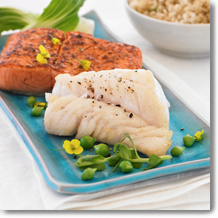
What About the Rest of The Fish?
I recommend eating as wide of a variety of food as possible, because each different food or ingredient on Earth has thousands of different compounds inside of them, and we have yet to discover all of them. We can tell when our food is not of the highest quality.
We can feel it, see it, smell it, and taste it. When looking at Ahi Tuna, we are looking for the deepest red. For salmon, we are looking for the deepest orange (that is not artificially colored). This happens most often when our food comes from places that have very little mercury or chemical pollution.
We want a variety of high-quality foods to consume with diverse micronutrient profiles. We also want to be mindful of how we feel with each type of food that we consume. One food that could be my saving grace could make you feel sick because we are all different.
Good Clean Food
We can universally agree that food grown on pristine lands, or caught in pristine environments are loaded down with nutrients. They also have the best appearance, smell, and flavor to match. This extends to wild-harvested herbs, spices, berries, fungi, and more.
We have the opportunity to eat the finest, exotic, ingredients from the most pristine environments on Earth to make eating healthy, fun, and delicious again. Taste the rainbow when it comes to your food, and find out what food lifestyle works best for you.
Omega-3 Supplementation: Why It Matters
While incorporating cold-water fatty fish into your diet is the best way to get omega-3s, supplementation can be a highly effective alternative, especially for those who don’t eat fish regularly. Not all omega-3 supplements are created equal, and many on the market use inferior forms of fish oil that are poorly absorbed and oxidize easily.
Why Feed a Brain Oil-Burn🔥Omega Monoglyceride Fish Oil is Superior
 Feed a Brain Oil-Burn🔥Omega Monoglyceride Fish Oil is designed for maximum bioavailability and absorption. Unlike standard fish oil supplements, Oil-Burn🔥Omega contains monoglyceride forms of EPA and DHA, which are up to three times more absorbable than traditional triglyceride-based fish oils. This ensures your body gets the most out of every dose.
Feed a Brain Oil-Burn🔥Omega Monoglyceride Fish Oil is designed for maximum bioavailability and absorption. Unlike standard fish oil supplements, Oil-Burn🔥Omega contains monoglyceride forms of EPA and DHA, which are up to three times more absorbable than traditional triglyceride-based fish oils. This ensures your body gets the most out of every dose.
Here’s what makes Feed a Brain Oil-Burn🔥Omega Monoglyceride Fish Oil stand out:
✅ Highly Absorbable – Uses monoglyceride forms of EPA & DHA for superior uptake.
✅ No Fishy Aftertaste – Ultra-pure formulation with minimal oxidation.
✅ Sustainably Sourced – Sourced from clean, sustainable fisheries.
✅ Brain and Heart Support – Formulated to optimize cognitive function, cardiovascular health, and inflammation reduction.
For those who struggle to get enough omega-3s from diet alone, Feed a Brain Oil-Burn🔥Omega Monoglyceride Fish Oil provides a convenient and effective way to ensure optimal brain and body health.
Final Thoughts: Make Cold-Water Fatty Fish a Staple
A Feed a Brain diet—rich in cold-water fatty fish, leafy greens, and nutrient-dense foods—is the key to optimizing brain health, cardiovascular function, and longevity.
🔹 Eat 2+ servings of fatty fish per week for maximum omega-3 benefits.
🔹 Choose wild-caught fish for the highest nutrient quality.
🔹 Incorporate antioxidant-rich foods to combat inflammation.
Making smart dietary choices fuels your body and brain, extending both healthspan and lifespan.

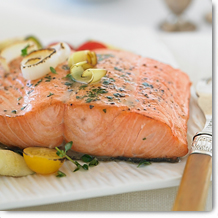


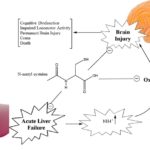
Comments